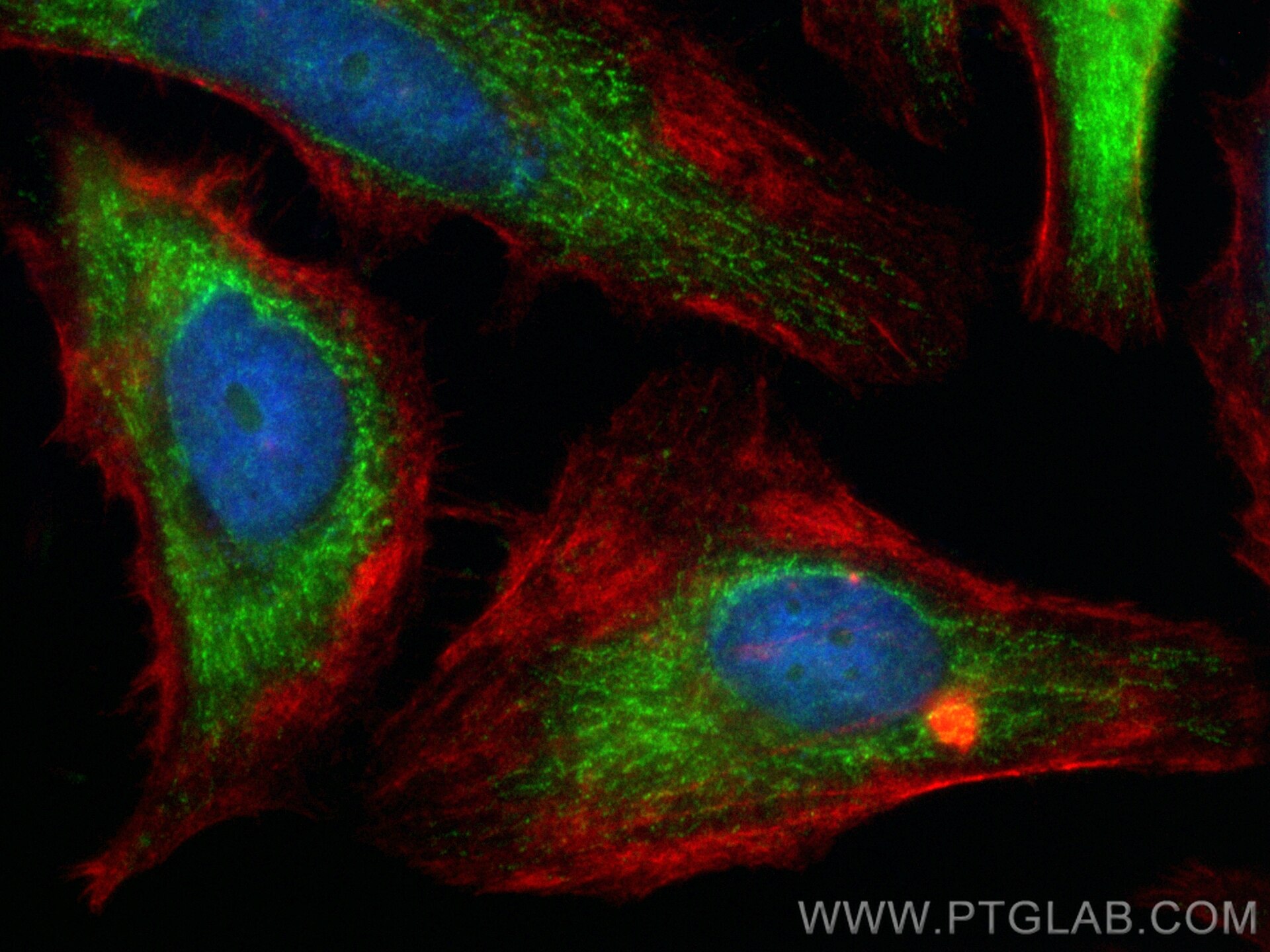Tested Applications
| Positive IF/ICC detected in | HeLa cells |
Recommended dilution
| Application | Dilution |
|---|---|
| Immunofluorescence (IF)/ICC | IF/ICC : 1:50-1:500 |
| It is recommended that this reagent should be titrated in each testing system to obtain optimal results. | |
| Sample-dependent, Check data in validation data gallery. | |
Product Information
CL488-14707 targets RNMTL1 in IF/ICC applications and shows reactivity with human samples.
| Tested Reactivity | human |
| Host / Isotype | Rabbit / IgG |
| Class | Polyclonal |
| Type | Antibody |
| Immunogen | RNMTL1 fusion protein Ag6399 Predict reactive species |
| Full Name | RNA methyltransferase like 1 |
| Calculated Molecular Weight | 47 kDa |
| Observed Molecular Weight | 47 kDa |
| GenBank Accession Number | BC050614 |
| Gene Symbol | RNMTL1 |
| Gene ID (NCBI) | 55178 |
| RRID | AB_3672600 |
| Conjugate | CoraLite® Plus 488 Fluorescent Dye |
| Excitation/Emission Maxima Wavelengths | 493 nm / 522 nm |
| Form | Liquid |
| Purification Method | Antigen affinity purification |
| UNIPROT ID | Q9HC36 |
| Storage Buffer | PBS with 50% glycerol, 0.05% Proclin300, 0.5% BSA , pH 7.3 |
| Storage Conditions | Store at -20°C. Avoid exposure to light. Stable for one year after shipment. Aliquoting is unnecessary for -20oC storage. |
Background Information
The RNA methyltransferase like 1 gene (RNMTL1) is one of thirteen newly discovered genes within a 116 Kb segment of the chromosome 17p13.3, which suffers from a high frequent loss of heterozygosity in human hepatocellular carcinoma. Its amino acid sequence was identified a high conserved region with methylases from various microorganisms, suggesting to have function to transfer methyl group to rRNA molecule [PMID:12296377].
Protocols
| Product Specific Protocols | |
|---|---|
| IF protocol for CL Plus 488 RNMTL1 antibody CL488-14707 | Download protocol |
| Standard Protocols | |
|---|---|
| Click here to view our Standard Protocols |



